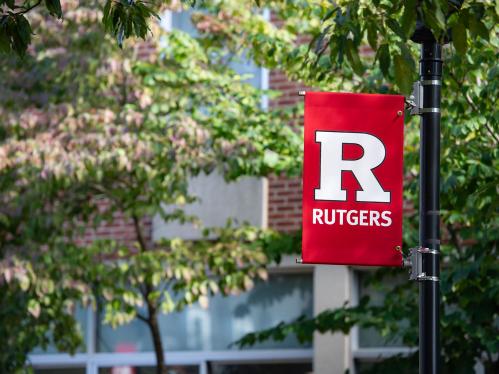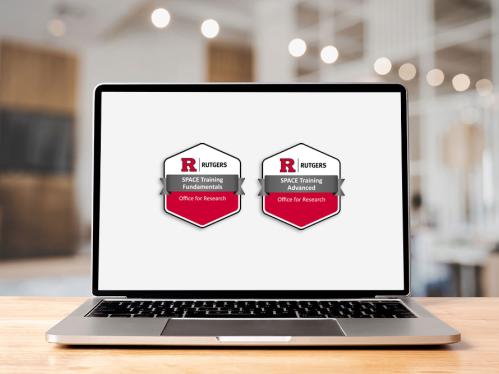Protect our university by maintaining compliance with federal, state and university guidelines.

SPACE Training
Sponsored Programs Academy for Continuing Education (SPACE) Training Program
Mission & Goals of SPACE
The Sponsored Programs Academy for Continuing Education (SPACE) Research Administration Training Program offers comprehensive training and Digital Badges for microcredentials to ensure that members of the Rutgers research community have a solid understanding of the university's processes when it comes to administering research.
Mission & Goals of SPACE
The SPACE Research Administration Training Program aims to promote continuous learning and enhance overall performance and productivity throughout the Rutgers research community. In doing so, the goals are to:
Ensure members of the research community are equipped with the knowledge and skills necessary to accomplish their job requirements.
Promote high quality, cost-effective training designed to increase individual and organizational productivity and success.
Offer multiple training tools that will increase learning and retention.
Choose from three (3) SPACE Training Program Options
Register for any course of interest by signing up via the Course Registrations System (CRS).
Sign-up for the SPACE100 Fundamentals Microcredential and register for the Core SPACE100 courses, and Electives SPACE200 courses.
After completing the SPACE Training Fundamentals Microcredential, sign-up for SPACE300 Advanced Microcredential and register for the required three (3) SPACE 300 courses.
Course Offerings
SPACE session topics are offered throughout the Fall and Spring semesters and is intended for all Rutgers staff who support research efforts across the university. There is no charge to participants or their departments for enrollment in the programs. All scheduled SPACE programs are open for individual registration. A microcredential badge is also available to show your accomplishment.

Earn a Microcredential
Sponsored Programs offers a microcredential badge to participants who have completed the Research Administration training series requirements. Microcredentials offer a narrow focus to develop specific professional skills in a short time. These badges can be shared on your signature line and via your LinkedIn profile, as well as other professional and social media platforms. Sponsored Programs initiated the program in Fall, 2018 and the first Microcredential badge was issued in Spring, 2022.
Enroll in SPACE using the Research's Course Registration System (CRS).

Fundamentals and Advanced Microcredentials
SPACE Fundamentals (11 Courses)
The fundamentals modules provide a basic overview of the various components of research administration, specifically the initial stages of the lifecycle of sponsored programs. Information covered includes pre-award, post-award, and contracts administration. These instructor-led, 3-hour modules are offered to assist newly-hired employees, existing employees assuming a new role, or those serving in any other entry level research administration capacity with learning the basics about conducting research at Rutgers.
SPACE Advanced (3 Courses)
The advanced modules offer a deep dive view into the lifecycle of sponsored programs with an added focus on budget preparation. These instructor-led, 2- to 3-hour modules are offered to assist managers, administrators and those serving in any other supervisory-level research administration capacity with understanding the various intricacies of conducting research at Rutgers. Those registered for this track should have substantial knowledge and proven skills in the subject areas.
Contact Us
SPACEtraining@research.rutgers.edu

Training Manager

Sr. Program Coordinator
